Woman firefighter: "I was told: you will have nowhere to sleep
“The guys have specific snoring, it wasn’t very good to fall asleep in the bedroom, and I slept in the car completely in combat, because it was cool there.” One of the few female firefighters Maria Vlasova told Pravmir why she put out fires at her own expense and how she persuaded incredulous men to hire her.
"I'll sleep even in the toilet"
It's eight in the morning, it's already dawn, but the Dedovsk fire station is still shrouded in blue twilight. A woman's voice suddenly rings out in the courtyard. This is Masha. Against the background of male figures in combat, her blond hair flickers like a bright spot. Women firefighters in Russia can be counted on the fingers, and Masha is one of them.
She introduces me to her colleagues and gives me a brief tour of the unit. Actually, the journey ends almost immediately, because the part is small: a hangar for two cars - firefighters call them “ATseshki” (only one is available, the second is under repair), a control room and two guard rooms: a bedroom with a TV and a kitchen.
A huge fire engine occupies exactly half of the garage. While we are walking, a local cat, Ada, scurries between our legs. Together with Masha, we get into the car, where she checks the oxygen tanks and writes down data on them, tells where someone is sitting when the car goes to the call.
In part, a pretty blonde was reluctantly taken.
- I was told - you will have nowhere to sleep, and I answered: yes, I don’t care, I’m not going to sleep here, but to work, at least I’ll sleep in the toilet, I’ll come with my cot ... At one time I slept in ATSeshka (fire engine) - The guys have specific snoring, it was not very possible to fall asleep in the bedroom, and I slept in the car completely in combat, because it was cool there. Over time, I got used to sleeping with snoring - I fell asleep under audio books, and returned to the guardroom.
She has to prove every day that she has the right to be a firefighter. This has become especially relevant recently, because the fire department is turning into a closed men's club in which there is no place for a woman.
Masha is offended: she regularly passes all the standards, moreover, according to male indicators, and she passes them no worse than men, she is ready to do the same work as them, and she does it well.
Is it uncomfortable for her to work with men? Still, there is a specific...
- No, - Masha calmly answers, - I have been with men all my life, I have five brothers, one is my own, the rest are cousins, we all grew up together. And then, all my jobs are like this: for example, among other things, I am a welder of the fourth category, I also want to unlearn to be a crane operator.
From zip to zip
My colleague's cars give me a little educational program about the fire business, tell me about the categories of fires, show the log of departures. According to Mashin, there are few calls in the Dedovskaya part now, in the summer there are much more - for example, last week there were ten, of which five were false.
- And if you hear that a child is calling, and you understand that the call is false, are you still going?
- Necessarily! Masha replies firmly. - We are obliged to leave anyway, and then let the police sort it out.
In winter, despite the fact that it seems to be snowing and out of season, there are no less fires than in summer: 5-6 devices are connected to the same plug using extension cords, because of this, the wires in the wall overheat. Another traditional winter story is when they try to heat a private house with a gas heater. The third is a red-hot hot bath.
In the warm season, the reasons are different: in spring, grass is traditionally set on fire, in autumn - leaves, in summer - houses that have been hit by lightning. “But what about the tall trees that take on the lightning? ..” - I hinted, and it turned out that the tall trees do not help at all, and since they save on lightning rods, firefighters go out regularly to extinguish the roofs that caught fire during a thunderstorm, in the summer in another part Masha once had 8 trips in a row in 12 hours, from lightning to lightning.
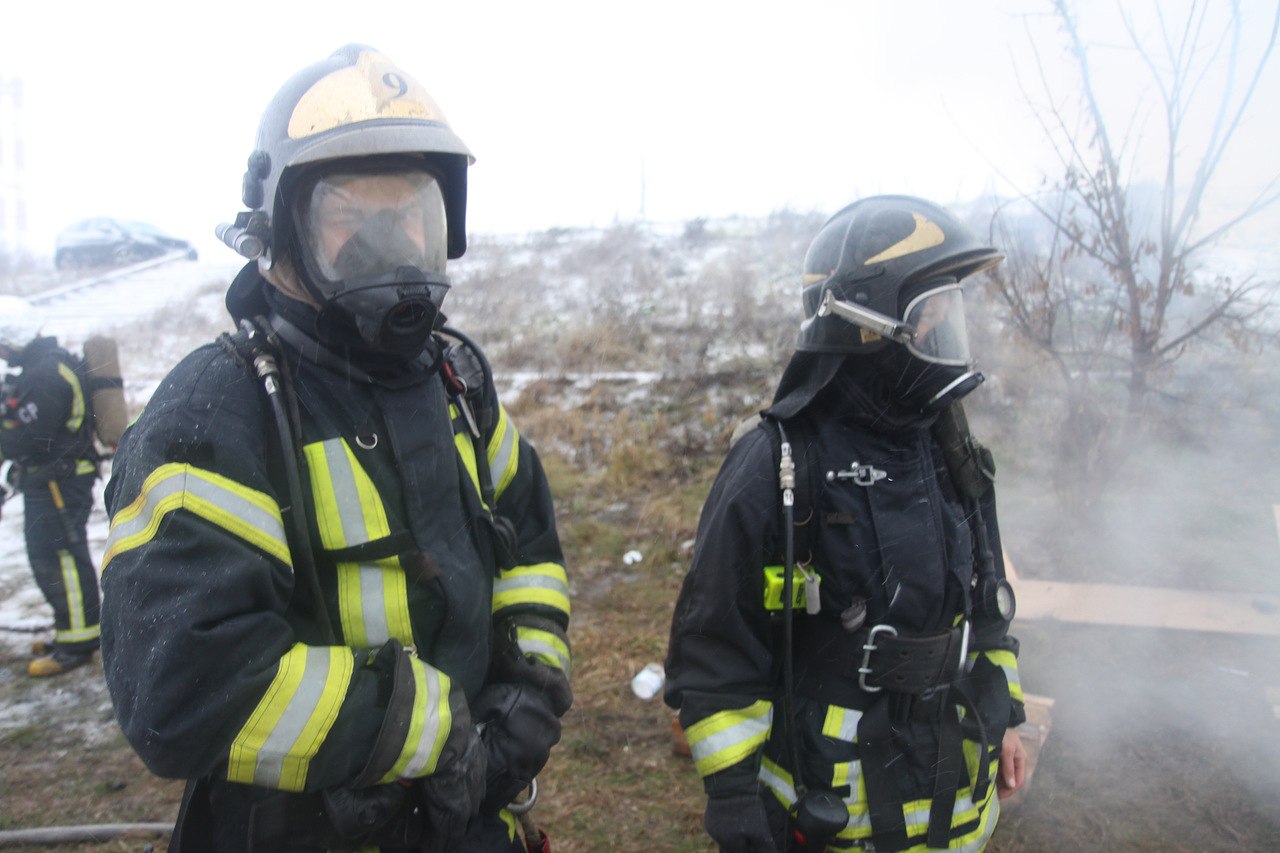
Volunteer for a fire at your own expense
The colleague's cars go about their business, and we go to the place where Russian people traditionally have conversations - to the kitchen. There, next to the boiling kettle, Masha tells me about herself. She lives in Moscow, in Mnevniki, and, unlike others, she goes to work not to Moscow, but from Moscow, in three days. In order to be part of the divorce, by 8 am, she gets up at 4.30.
Satisfied with the sight of my bulging eyes, Masha adds: before she became a full-time employee of Mosoblpozhspas and officially a firefighter, she volunteered to put out fires for six months, and there was a moment when it was difficult with money, and in order to come on duty to the fire department in Golitsyn , Masha borrowed money for the journey.
From the generally accepted point of view, Masha is a crazy person. What normal person would go to the region as a volunteer to put out fires at his own expense?!
The explanation, perhaps, is in the childhood of the Machine, in the family. Grandmother is an honored doctor of the Soviet Union, 55 years of experience, grandfather is a military surgeon, and in general, many relatives are connected with medical and military service, with saving people.
And Masha moved in this direction throughout her conscious youth, but at a transitional age, as she herself defines it, she “got a little furious” and went into journalism. She studied for a long time, with a break for the decree, but now she just defended her diploma in journalism and is going to study in the field of medicine, and is also thinking about getting a specialized education at the University of the Ministry of Emergency Situations. For several years she worked as an assistant screenwriter, a guest actress for minor roles in programs, an organizer of the filming process, and a coordinator of a television channel.
Since 2011, Masha has been a volunteer, she took first aid courses, then became a Red Cross first aid instructor. After first aid there were Spasreserve courses. Spasrezerv is a volunteer organization to help professional rescue teams, built according to their scheme: professional training, shifts, shifts, divorce at 8 am, shift 24 hours, receiving tasks from the Crisis Management Center (CCC) of emergency service 112, only ... everything is on volunteer basis.
- I was lucky to communicate with ideological people who live in rescue, firefighting, and for them it is not just a profession, when they come, put out something and leave - they are saturated with this to the marrow of their bones, they are constantly improving, investing their money in equipment, equipment , education…
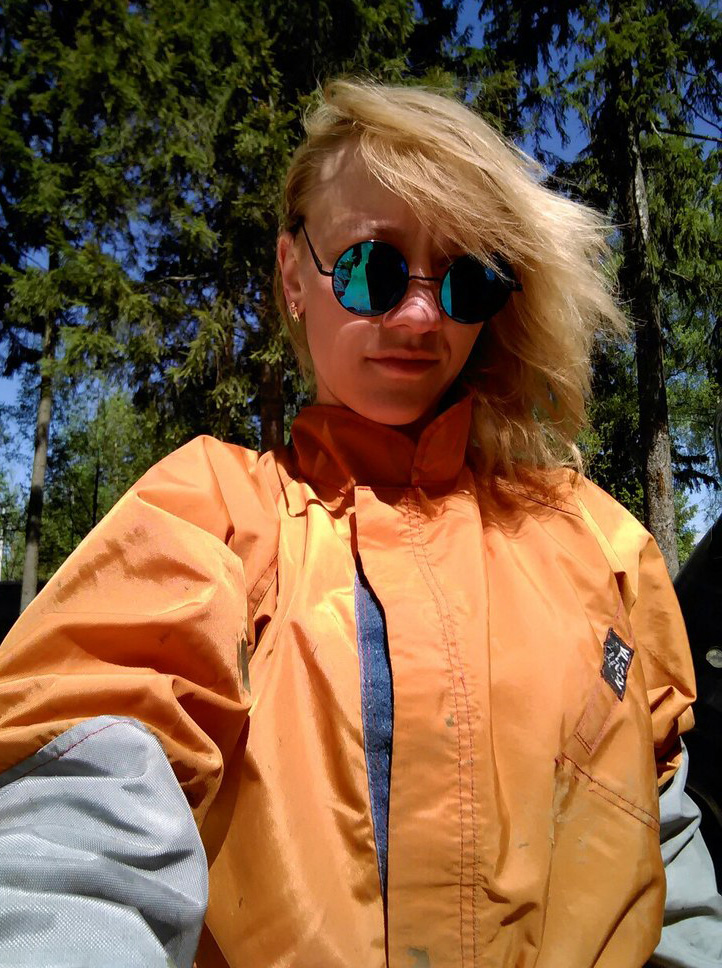
By the way, what is your salary?
- The salary is 8 thousand with a penny, and the total amount is always different, but not like the players and deputies ...
The schedule is three days later, so Masha, in accordance with her hobbies, has another job. She has been engaged in industrial mountaineering for 11 years, is an instructor, trains children and adults at the climbing wall. He trains a lot, keeps fit for work and participation in competitions. There is a horizontal bar in the unit, there is some free space and, as a rule, a lot of free time (departure does not happen every shift), so Masha goes in for sports in the unit, as well as in Moscow: she runs, goes to the climbing wall, goes in for mountain tourism in the section of Moscow State University with 2007, participates in forced marches of 70 kilometers and twice became a winner in them.
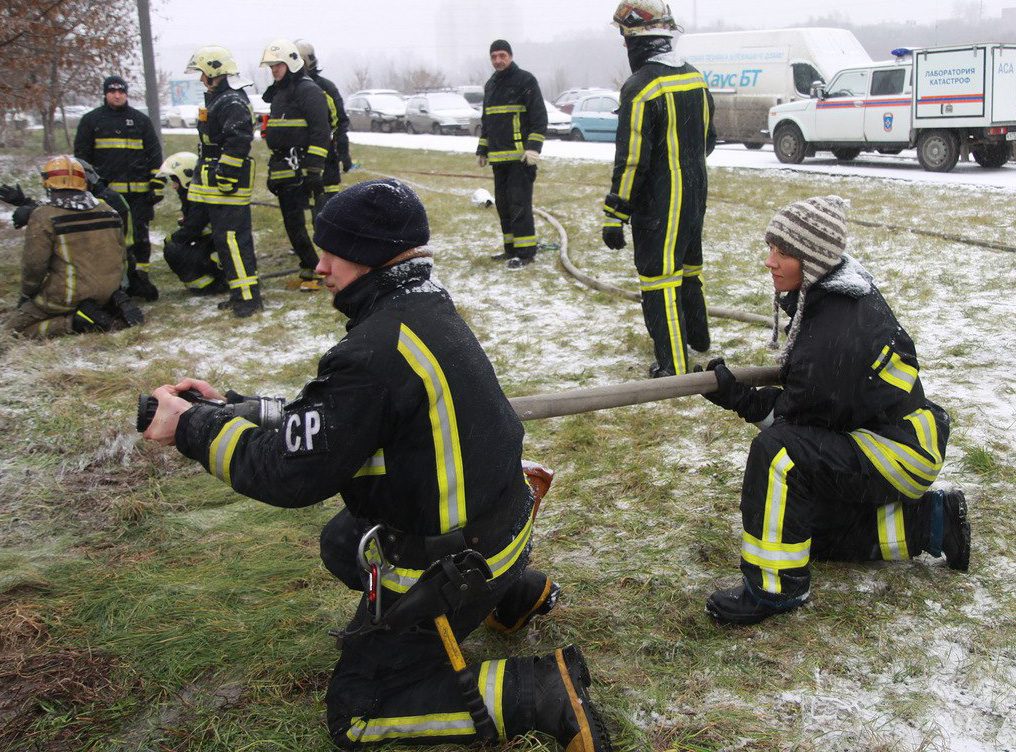
On an equal footing with men
While everything is calm in the unit, Masha and I go to the store and to the bakery, which is located nearby - by agreement with the head of the unit, the bakery daily gives firefighters 4 loaves of freshly baked bread. On the way, Masha talks about how the world of men in "male" professions is not only not indulgent towards women, but on the contrary, jealously and harshly guards its borders from "invasion".
Over the years of working with men (industrial mountaineering, welding, working as a firefighter and rescuer, participating in survival competitions, mountain tourism, etc.), Masha has accumulated many amazing stories. For example, she may not be allowed to participate in competitions, because if she does not take a prize, she will bypass many men, and it will be unpleasant for them.
She is openly or hinted at about her professional and athletic unsuitability - despite the fact that Masha, for example, pulls herself up 16 times: for the vast majority of her colleagues, this is an unattainable figure, and the norm for women is 0.
She may not be allowed to take a prize in the men's standings and give her the fourth, although by all indicators she should be in the top three. She is expected to relieve her male colleagues of cleaning and cooking duties.
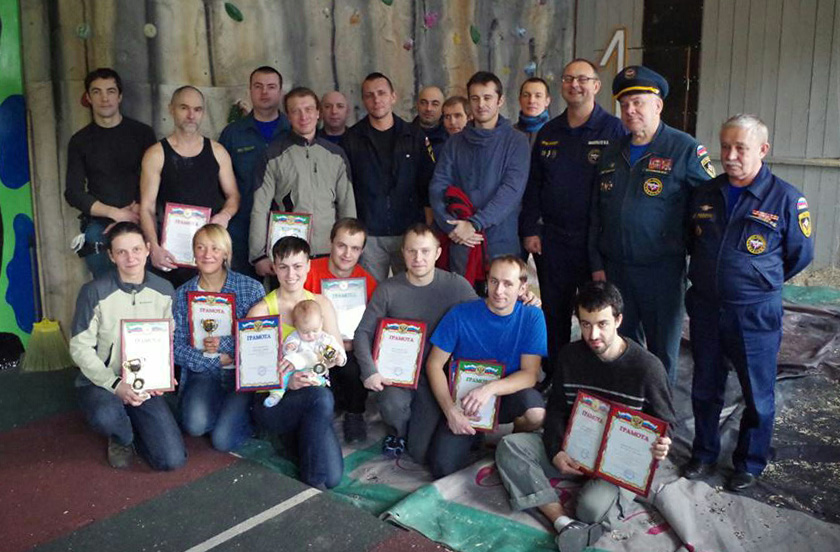
We are back in the cozy kitchen of the fire station, and Masha talks about how, in her opinion, a real lifeguard should be. She considers age to be an important characteristic: on the one hand, the rescuer must be in good enough shape to cope with his duties, and on the other hand, he must not be very young.
“Those who work in emergency situations must have life experience. It's like with psychologists: a psychologist working with people in crisis situations cannot be twenty years old, and now this happens all the time in the Ministry of Emergency Situations. For example, a girl graduated from high school and went to study at the Academy of Civil Defense and Emergency Situations (civil defense and emergency situations), at the age of 21 she already went to work, and now she, a person who has no children, no family, no life experience, who psychologically incapable of simulating a situation where a person, for example, lost his entire family in a car accident or suddenly all his property burned down, works with people who survived this.
Another important property is that a good firefighter is constantly learning, including from his own experience, that is, he goes to fires, communicates with colleagues, spends time and money on self-education, on sports.
In part, it's time for lunch. They cook themselves, so while Masha and I are talking in the kitchen, one of her colleagues is cooking soup, and I almost force myself to keep myself in place so as not to jump, grab a slotted spoon and start skimming the foam from the soup. Masha watches this calmly - if she does what is considered a man's work on an equal footing with men, why shouldn't they do what has been considered women's work from time immemorial?
- Masha, when you came here, did you bring some kind of home comfort, began to bake, cook, clean up?
- I did it first. I am generally a domestic and economic person, for example, I am an administrator in a culinary group, I come up with all sorts of recipes, the only thing is vegetarian, because I have not eaten meat for more than 15 years.
In the annual rescue all-around competition, I participated not only as an athlete, but also was the head of the kitchen, and I really liked that I could feed the guys deliciously after difficult stages. Here at first she baked pies, cooked soups, baked fish, made salads and so on, but they made me understand that no one needed this, and I stopped.
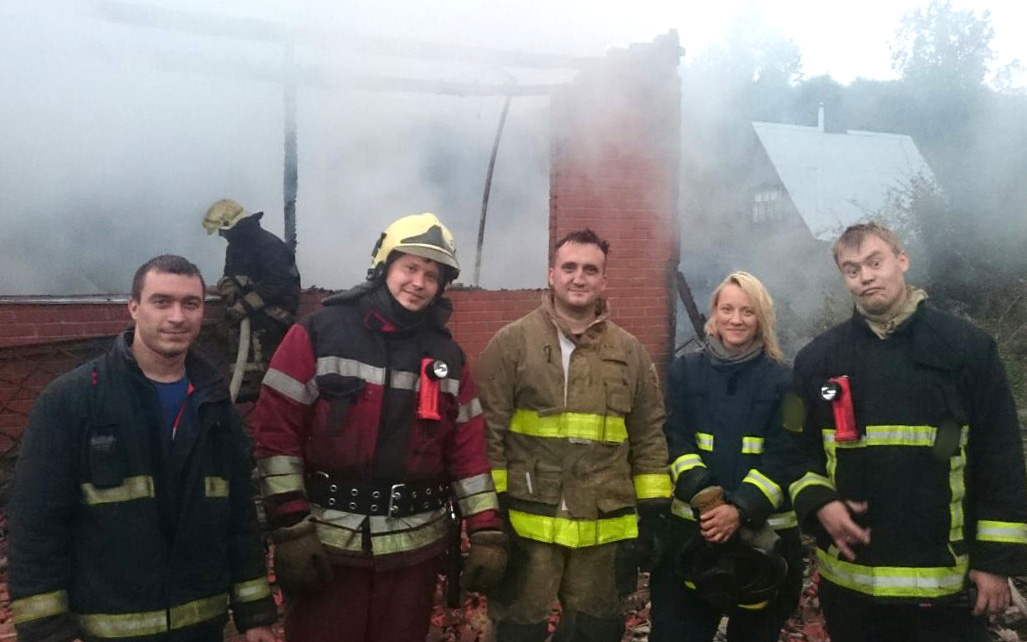
Recipe for burnout: calm and business
- You have repeatedly observed emergencies - both as a rescuer and as a firefighter - how has this changed you?
“I have a different attitude towards life and death. Probably, I went to the rescuers, because for me the value of human life was off scale, but when I learned, when I gained certain experience, it was modernized into something more logical and correct: I know what and how I should do in order to save a person life.
Of course, this had never happened before - when I saw an open fracture for the first time, I just stood and looked at it, it shocked me, everything looked completely different in the book. Some things have become more cold-blooded. There are times when you cannot remain calm, but in order not to burn out, you have to force yourself to do it.
I was always surprised how children's resuscitation doctors manage to joke at their work. My father had a good friend - a pediatric resuscitator, and I have never met a more cheerful person in my life, and I remember how it amazed me in my childhood: how she can have fun and laugh, because children are constantly dying on her "table" ?
Now I understand that this is psychological protection. If she doesn’t exist, how will you work, how will you live when you arrive at an accident, a squeezed driver is screaming in the front seat, and his dead wife is lying in the back?
In order not to constantly experience in herself what she encounters at work, Masha does not give herself time to be idle. If she has free time, the best rest for her is reading, playing World of Warcraft with her daughter and brothers, sports, going out with friends, movies.
Another direct consequence of the work of a rescuer is that Masha worries about her loved ones much more than others - for example, about her grandmother, who began to gradually withdraw into herself and soon, apparently, will need a watch with a tracker and notes with an address and a phone number in her pocket. Parents also feel this anxiety: she tries to call them every day and always know where they are, meets her mother from the guests when she returns late at night.
He even worries about his friends and always asks to call or at least send news that he is already at home. Finally, she began to take more care of herself, because she is responsible for her family and loved ones: mom and dad don’t work because of their age, both have disabilities due to diabetes, no husband, alimony too, and all maintenance is on her.
- I used to treat myself more slovenly, I didn’t know where I climbed, I could go all over Moscow up and down at night, now I don’t anymore: firstly, you need to save your strength, and secondly, it’s better to go for a walk during the day when it’s light. Maybe it's the age...
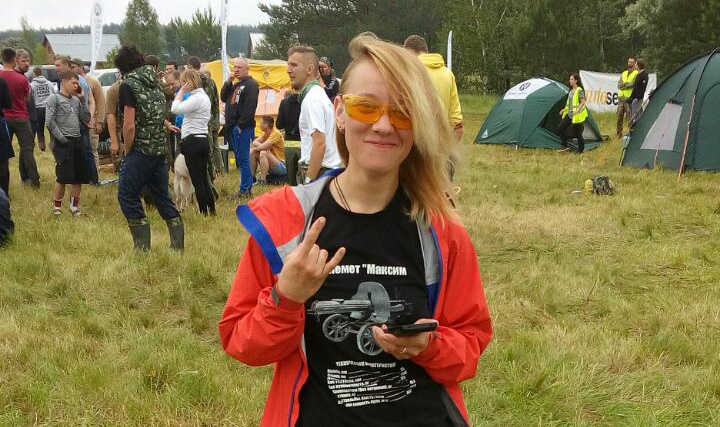
“Never ask God to give me something”
When asked about her faith, Masha thinks for a long time.
“I have a difficult relationship with God. I went to Him for a long time. Everyone in the family was unbaptized, except for the father. In the seventh grade, I became interested in Hinduism, then, already at the institute, I studied Buddhism, but closer to pregnancy, I began to be drawn to God, to church, to temples. Having given birth to a daughter, I was baptized, baptized my daughter - I just had the confidence that this should be done.
And after that, every time I went to churches, baked Easter cakes for Easter, I had a great spiritual uplift, because I felt that I was doing everything right. And then, when my grandmother died on Easter, I stopped baking Easter cakes. And that feeling began to fade. Maybe I'm just not ready for it yet...
But, of course, there is God in my soul, how can it be without Him? God is needed, and even small children unconsciously talk to Him. Now I turn to Him when it’s hard or when I want to thank, but I never ask Him to give me something - only if I have the patience or strength to do something, or to teach me balance in everything ...
When they brought the belt of the Virgin to the Cathedral of Christ the Savior, I went there, although I am very skeptical about such events.
They stood there to ask for something, and even in the press release it was written what and how to ask. And I stood, stood for almost seven hours right from the very Sparrow Hills, came up and said: “Thank you.” And went...
At lunch, they almost forcibly seat me to eat delicious soup, pour a completely masculine portion, which in ordinary life would be enough for me for three days, push the most delicious piece of bread - pink salmon. Masha eats something of her own, vegetarian. In the bedroom, the TV hums, in general the atmosphere is homely, quiet, calm.
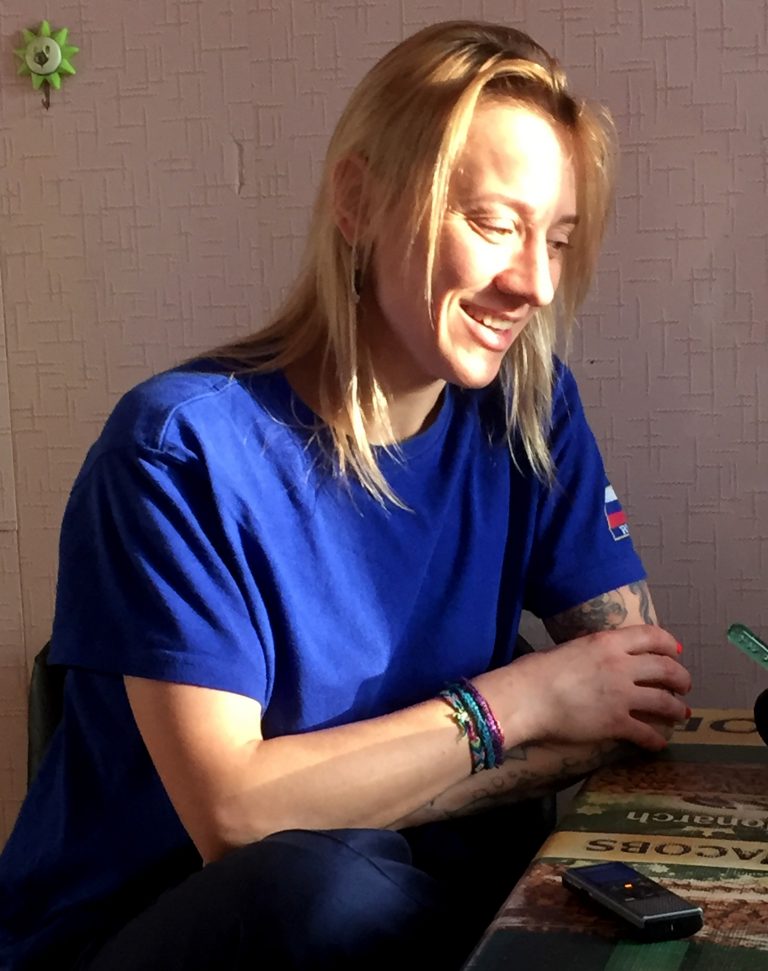
After dinner, everyone again goes about their business, and Masha and I continue our conversation. Suddenly, a sharp loud call is heard in the unit. Masha cuts off the phrase in mid-sentence and instantly becomes some other.
Looks like it's the exit! - she rushes to the control room, pulling on the combat gear as she goes. The sleepy and empty part is transformed in one second: those who leave, run to the hangers, grab combat boots and put on boots, the KamAZ engine is already rumbling, the garage is instantly filled with gray acrid smoke. I get under everyone's feet, trying to figure out where to go, coughing from the smoke and finally roll out into the street, where firefighters have already gathered waiting for the car (landing takes place on the street). I get into the car, a helmet, a fire belt and an ax fly after me, Masha jumps in, and we drive.
On the narrow village streets of Dedovsk, we hardly pass with oncoming cars. To let us through, they have to dive into the snowdrifts and crawl backwards into the alleys, while our car, swaying, howling and blinking, floats through the streets like a big ship. Finally, we arrive at the place of the call, one of the fighters jumps out, walks in circles around the house, Masha watches him through the window.
“Looks like a fake call,” she concludes. And so it turns out.
Like Tereshkova, but not an astronaut
On the way to the unit, Masha shows me her helmet, and I understand why her dream is imported. I look at her and think: here is a person who lives by his work, breathes it, is proud of it, wants to become better for her ... Masha, as if in response to my thoughts, says:
- One of our fighters works in the unit together with his father-in-law, they have a whole dynasty.
I admire, and Masha continues:
- Once he told me that he was very ashamed of his work and was terribly worried that someday his daughter, walking from school, would see him putting out the trash ...
I remember once at a minor incident in Boston I saw a funny scene. Firefighters, who arrived at the triggered alarm, extinguished a small fire and were about to leave when a boy of five years old came out for a walk. Upon learning that he had missed everything, the boy began to sob bitterly.
And then a big, handsome firefighter in combat came up to him, squatted down and began to console him. He pulled off a mitten from his huge paw, took out a candy from somewhere, gave him a helmet to try on, and also left his business card, asking the boy, if a fire suddenly starts somewhere, be sure to call him.
It was amazing, touching, I stood nearby, frozen, looked and understood where this national attitude towards the police and firefighters as heroes comes from. From here, from children's delight, from the fact that the firefighter himself understands how important and necessary his work is, from this pride in his truly heroic work, from attention to children - yes, yes, to children, to how they see this work...
The family is proud of her car, especially her daughter. The brothers say about Masha that she is like Tereshkova, only not an astronaut.
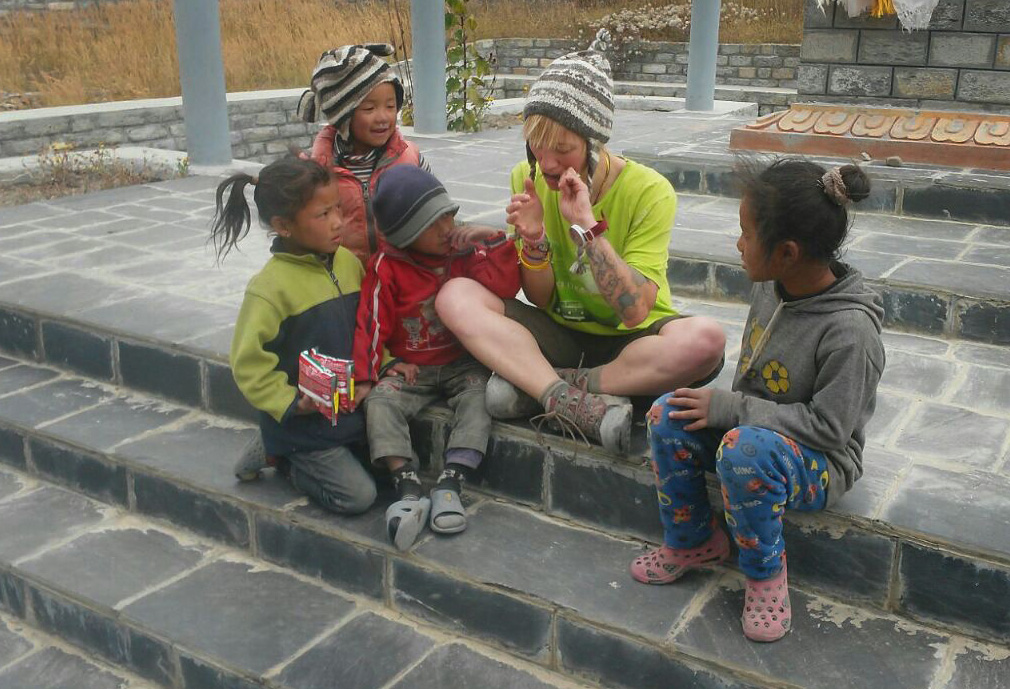
Before entering the unit, Masha jumps out of the car and blocks traffic at the intersection until the driver carefully reverses: otherwise the car simply cannot enter the unit. In response to this, a passenger car rushes at Masha, the driver desperately beeps and swears. I ask Masha in surprise if this happens often, and she waves her hand:
- Oh, so almost always, do not pay attention ...
Xenia Knorre Dmitrieva